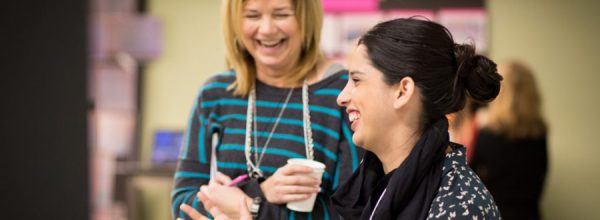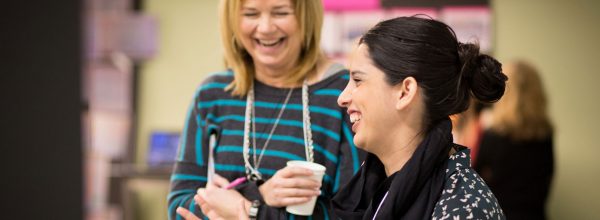In February 2017, I attended a “Practice Coaching for Primary Care Transformation” training in Portland, Oregon, developed and co-led by CareOregon and UCSF’s Center for Excellence in Primary Care. I spent four days learning about the 10 Building Blocks of Primary Care, taking a deep dive into the foundational blocks of empanelment, team-based care, engaged leadership, and data. I came away with one overarching message from the week: in order to succeed with transforming our health care system, we need to slow down in order to go fast.
What does this message mean for the health care landscape? In the context of the training, it meant in order to succeed with deep, transformative changes to the way we deliver primary care, instead of just plowing ahead in the same way we always have, we need to slow down and investigate the way we operate, experiment, and make changes. And to recognize that the trade off for future transformation might be slowing down the work we are doing in the present moment.
But how do we slow down? How do we carve out time in our own busy clinics and nonprofits to make the changes necessary now in order to succeed in the long-term? I know that’s something I struggle with in my daily life, and have experimented with along the way. For example, last September, I had the opportunity to attend an eight-day silent meditation retreat in Joshua Tree through the Hemera Foundation’s Contemplative Fellowships for Health Care Professionals (CFHP). One whole week with no talking, no eye contact, no reading, no computers, no phones, just surrounded by a community of others dedicated to experimenting with silence, the desert, and being alone with our minds. Talk about slowing down! At times, it was excruciating, I could feel every second tick by, my body and mind craving the sound of the bell signaling the end of each meditation sit. But by the end of the week, I had struggled through and discovered a sense of lightness and clarity unknown to me before. I had no desire to return to talking or the internet, and savored the quiet of my eight-hour drive back to the Bay Area, before plunging back into regular life.
A week in the desert might not be the solution for everyone, but what are other ways we can experiment with slowing down in our personal and work lives? During CCI’s last in-person session in Oakland for our CP3 Comprehensive Track Program, Boris Kalikstein, former Vice President of Strategic Support at Clinica Family Health in Colorado, presented “Applied Population Management: Innovation When You Feel Like You’re Drowning.” He shared that while at Clinica, he directed his developers to work from home one day a week on a project of their own choosing. The premise was that his staff needed the flexibility and space to innovate and problem solve, instead of spending each day drowning in data requests from clinic staff. They needed a break from the day-to-day to discover ways to do their overall work better.
The health care landscape is rapidly changing with the 2016 election and the House Republicans’ recent release of their plan to repeal and replace the Affordable Care Act. While it may feel like it’s exactly the time to speed up in order to combat what’s happening, I think it’s time to do the opposite: slow down, take any inventory of what we are spending our time on, and get rid of the things that weigh us down. We need to create the space and time to both respond to external threats like the ACA repeal and also proactively continue to build the health care system we know will best serve patients and keep providers happy.
How are ways that you slow down in your life, both personally and professionally? If you had a full day (ok, how about just two hours a week?) where you could have protected space in your schedule, how would you spend that time? What would you focus on?
Find this useful or interesting? We’re constantly sharing stuff like this. Sign up to receive our newsletter to stay in the loop.



